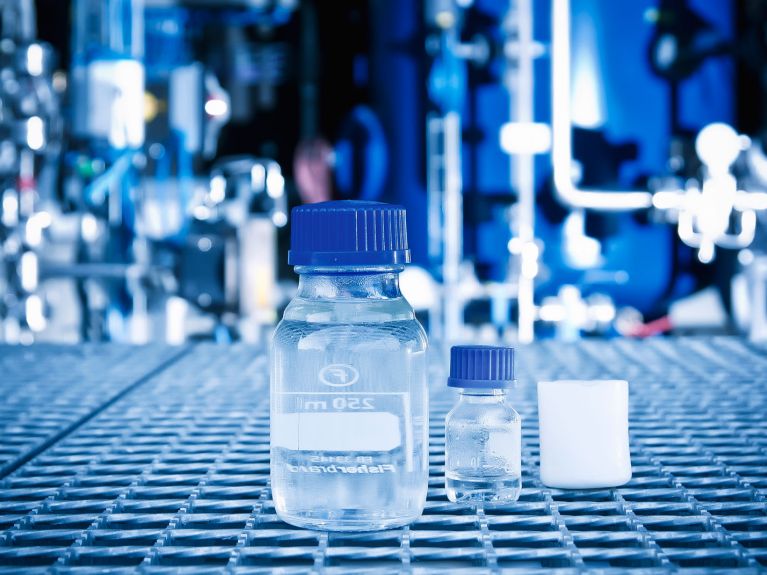Can Blue Crude save our climate?
A Dresden-based firm has succeeded in manufacturing a climate-neutral superfuel using carbon-dioxide, water and green electricity.

Germany. While Germany argues about the advantages and disadvantages of diesel fuel, a company in Dresden is working on the marketability of a revolutionary development. The Sunfire company has succeeded in producing a climate-neutral mineral oil substitute called Blue Crude using carbon-dioxide (CO2), water and green electricity. If large-scale production is successful, transport and heating, which together account for two thirds of all greenhouse gas emissions, would be able to make a considerable contribution to climate protection.

Passed the test
Using a power-to-liquids plant that generates liquid fuel by electrolysis, Sunfire has manufactured three tonnes of Blue Crude, the synthetic oil substitute, with the aid of green electricity, CO2 and water. “Very many areas of our economy are dominated by oil. Everyday products – from trainers to cosmetics – are inconceivable without mineral oil,” says Nils Aldag, Chief Commercial Officer of Sunfire. “With Blue Crude we now have a zero-carbon mineral oil substitute that can be produced all over the world using our technology and make a massive contribution to accomplishing climate protection targets.”
With Blue Crude we now have a zero-carbon mineral oil substitute that can be produced all over the world using our technology.
Refineries and filling stations stay in place
The carmaker Audi is receiving part of the Blue Crude output. The manufacturers state that tests have confirmed the properties: the synthetic fuel based on the raw product has a high cetane number and therefore offers especially good combustion characteristics. Furthermore, it is free of sulphur and aromatic compounds, and burns almost soot-free. “The use of Blue Crude is the most efficient means of organising haulage, long-distance and air transport in a renewable way in the medium term, because the existing infrastructure of refineries, filling stations and means of transport can be kept,” says Christian von Olshausen, Chief Technology Officer at Sunfire.
No more expensive than diesel?
Industrial scale production is currently still too expensive. However, Sunfire manager Aldag is confident that production costs can be reduced to the level of fuel prices. If the taxation and regulatory framework were adjusted, there would be nothing to stop a breakthrough. Strong partners like Audi, Boeing and Thyssen Krupp Marine Systems have already announced an interest.

